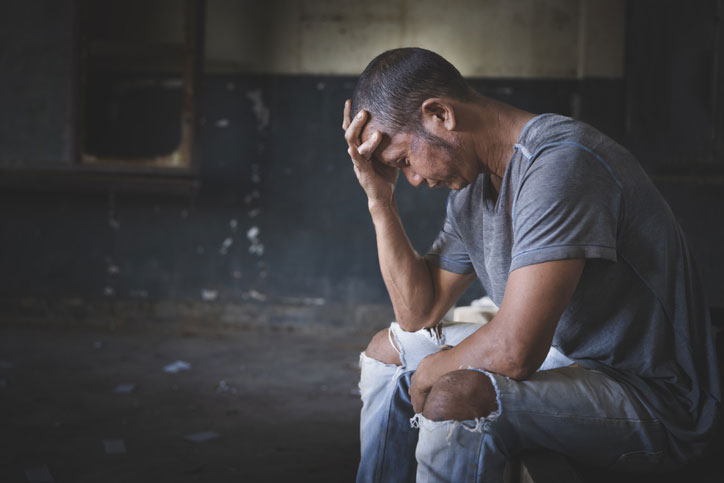Written by Scott Wilson

New York is its own kind of juggernaut when it comes to substance use disorders (SUD).
According to the state Office of Addiction Services and Supports (OASAS), in 2022 nearly 3 million New Yorkers over the age of 12 had a substance use disorder. More than 6,300 of them died from overdoses, while another 2,000 were estimated to have passed away from alcohol-related disease.
That puts New York behind only Florida in terms of overall drug deaths. Each of them is a tragedy that leaves families picking up the pieces.
Every day in the Empire State, however, dedicated and well-trained social workers show up to do something to prevent those tragedies. And they’re making a measurable difference.
What Is the Role of a Social Work in Substance Abuse Treatment in New York?
Social workers play a unique role in handling substance use disorders at every level in the United States today.
With the right education and clinical licensure, they can offer treatment in inpatient and outpatient settings, either independently or as part of a larger organization.
They can use a range of psychotherapy treatments directly or act as case managers, directing SUD patients to other resources for all their various support needs:
- Housing
- Methadone or other chemical addiction supports
- Mental health counseling
- Healthcare
Families and friends are often the helpless bystanders in the addiction world, but social workers have the skills and expertise needed to help them become parts of the solution. Orchestrating group intervention, managing crisis moments, and providing education and guidance all have a big impact on SUD cases.

At non-clinical mezzo levels, social workers serve as expert case managers for people struggling with substance use disorders. They have a broad understanding of the human services system and the ability to provide referrals that can get addicts into treatment plans quickly and effectively. They also understand the impact of various environmental factors on addiction, and can line up additional services, like housing or mental health counseling. Provisioning for these kinds of basic necessities can remove a lot of background stress for patients and make a real difference in treatment success rates.
They are also effective advocates at the macro level. New York-based organizations like the Drug Policy Alliance have successfully shepherded new alternatives like diversion programs, reduced civil penalties for drug use, and spearheaded marijuana decriminalization across the country.
Specialized Social Work Degrees in Addiction Therapy in New York
It’s possible to engage in mezzo and macro social work in addictions with only a Bachelor of Social Work degree. In fact, a BSW can be applied toward qualification as a CASAC (Credentialed Alcoholism and Substance Abuse Counselor) in New York, allowing you to provide direct treatment for substance use disorders even without a social work license.
But most social workers who specialize in treating addictions in New York will ultimately be headed for a Licensed Clinical Social Worker credential, and that often means earning a specialized MSW, such as the Master of Social Work in Mental Health, Substance Abuse and Trauma in Context or a Master of Social Work in Alcohol and Substance Abuse to build up skills in treatment from a uniquely socially-informed perspective.
That expertise is built through classes in:
- Theories and Principles of Alcohol and Substance Abuse Counseling
- Introduction to Substance Abuse Counseling Techniques
- Sociological and Psychological Aspects of Substance Abuse
- Physical and Pharmacological Effects of Substance Abuse
Those come on top of the standard MSW classes in topics like human behavior in social environments, social welfare systems and policy, and multicultural counseling. Those serve as a glue to bring SUD treatment together with social work practices and theory.
Patients with substance use disorders come from all across the socioeconomic spectrum and from every age and culture. So it’s also possible to get an angle on, for instance, dealing with youth addiction issues through a Master of Social Work in Family, Youth, and Children’s Services.
And due to the nature of dealing with addiction issues, it’s also common to draw on practice areas in trauma and crisis management. So a Master of Social Work in Crisis and Resilience, or an MSW in Trauma Informed Practice would also serve you well.
As with all MSW programs, these come with experiential learning opportunities that are aimed at building your practical experience on top of solid theoretical mastery. There are opportunities to embed with New York organizations and agencies like Phoenix House, Erie County Medical Center, or The Jewish House Residential Treatment Center.
Earning the CASAC Credential is Common for New York Social Workers in Substance Abuse and Addiction Counseling
It’s quite common for social workers in substance use disorder treatment roles to also hold CASAC (Credentialed Alcoholism and Substance Abuse Counselor) certification with the state of New York. Some social work schools here align their MSW coursework with CASAC standards so that on graduation you’ll have fulfilled all the educational requirements to get certified.
Social work is one of the approved human services degree types accepted by the New York Office of Addiction Services and Supports as meeting educational requirement for CASAC credentialing.
Additionally, an MSW can be used to count for up to 4,000 hours of the 6,000 hours required to become CASAC certified. So on top of taking care of educational requirements, you can also dramatically cut down on the time needed to qualify through work experience.
New York is a member of the International Certification & Reciprocity Consortium (IC&RC), so if you already hold a similar SUD counseling license from another IC&RC state, you are likely to have an easy time becoming a CASAC through reciprocity.
Professional Certifications for Social Workers Specializing in Substance Use Disorder

In addition to official CASAC certification, which is offered by OASAS directly and gives you practice authority to treat alcohol and substance use disorders, there are also professional certifications to consider.
The National Association of Social Workers is the first stop for most social workers seeking professional certification. Well-respected and well-established nationally, the Certified Clinical Alcohol, Tobacco & Other Drugs Social Worker (C-CATODSW) evaluates and acknowledges expertise in screening, treatment, and case management for social workers in substance abuse therapy. To get certified, on top of earning your MSW you have to:
- Receive an additional 180 contact hours of relevant continuing education (CE)
- Show that you have performed at least two years of paid, supervised, post-MSW clinical experience in SUD-related environments
- Hold a current LCSW
- Conform to the NASW Code of Ethics and ongoing CE standards
You may also qualify as a Master Addiction Counselor (MAC), offered by NAADAC, the Association for Addiction Professionals. An MSW is one of the accepted degrees for this high-level recognition of expertise in addiction treatment. On top of the degree, you’ll need:
- Current state CASAC or LMSW/LCSW license
- At least three years of supervised substance use disorder counseling
- At least 500 contact hours of education and training specific to Substance Used Disorders
- A passing score on the MAC exam, the eMAC from the National Board of Certified Counselors, or the AADC from IC&RC
NAADAC also offers a few specialized certifications that could make sense depending on your particular practice area. National Certification in Nicotine and Tobacco Treatment or National Certified Adolescent Addiction Counselor certs can shine up your qualifications in handling specific types of patients.
What Organizations Hire for the Role of Social Worker in Drug Rehabilitation?
Social workers don’t make up the majority of SUD treatment professionals in New York, but they are a linchpin in the overall effort no matter where you go in the state.
Surprisingly, nearly half of all SUD treatment admissions in 2023 were upstate rather than in the NYC metro area, meaning there is plenty of work for substance abuse social workers outside of urban areas.
Naturally, the biggest employers for social workers in New York in addiction therapy are specialized organizations and rehabilitation facilities handling substance use disorder treatment. From in-patient facilities that need therapists and case managers to outreach organizations that work to reduce the trauma and misery on the streets, social workers play a part in outreach and treatment for individuals at every stage of addiction in every sort of substance.
Law enforcement agencies and the criminal justice system are often the final point of contact for patients addicted to illegal substances. From police departments to prisons, these organizations are struggling to cope with the issues. Many are hiring social workers with expertise in addiction treatment and diagnosis to help them work through better approaches to enforcement and rehabilitation.
Licensed Clinical Social Workers in New York also have the option of practicing addiction therapy independently, starting their own business anywhere in the state.
Mental health and substance abuse social workers command the highest salaries of any group of social workers in the state of New York according to 2022 Bureau of Labor Statistics data.
Whether you choose to dive into the role of substance abuse therapy as a social worker, one thing is true: as long as substance use disorder is so widespread and so unchecked in American life, almost every sort of social work will intersect with it. For those who chose to specialize in this field, this is the work that will help make all the other goals of social justice and community health possible.
